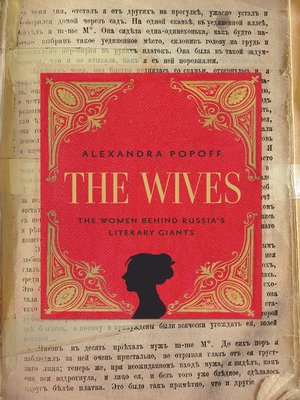
Sign up to save your library
With an OverDrive account, you can save your favorite libraries for at-a-glance information about availability. Find out more about OverDrive accounts.
Find this title in Libby, the library reading app by OverDrive.



Search for a digital library with this title
Title found at these libraries:
| Loading... |
"Behind every good man is a good woman" is a common saying, but when it comes to literature, the relationship between spouses is even that much more complex. F. Scott Fitzgerald, James Joyce, and D. H. Lawrence used their marriages for literary inspiration and material, sometime at the expense of their spouses' sanity. Thomas Carlyle wanted his wife to assist him, but Jane Carlyle became increasingly bitter and resentful in her new role, putting additional strain on their relationship.
In Russian literary marriages, however, the wives of some of the most famous authors of all time did not resent taking a "secondary position," although to call their position secondary does not do justice to the vital role these women played in the creation of some of the greatest literary works in history.
From Sophia Tolstoy to Véra Nabokov, Elena Bulgakov, Nadezdha Mandelstam, Anna Dostevsky, and Natalya Solzhenitsyn, these women ranged from stenographers and typists to editors, researchers, translators, and even publishers. Living under restrictive regimes, many of these women battled censorship and preserved the writers' illicit archives, often risking their own lives to do so. They established a tradition all their own, unmatched in the West.
Many of these women were the writers' intellectual companions and made invaluable contributions to the creative process. And their husbands knew it. Leo Tolstoy made no secret of Sofia's involvement in War and Peace in his letters, and Vladimir Nabokov referred to Véra as his own "single shadow."






